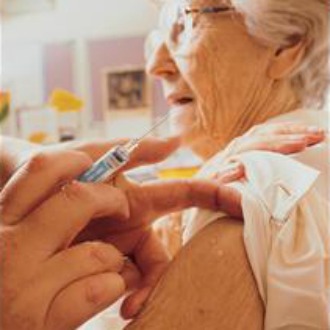One in five patients with rheumatoid arthritis are failing to receive influenza vaccinations, while half are not receiving pneumococcal vaccinations, say researchers.
The team, who conducted a retrospective cohort study of patients with RA that were taking immunosuppressive drugs, also found that only 73% of RA patients under the age of 65 had received a flu vaccination, while only 43% received at least one pneumococcal vaccination.
Younger patients were also less likely to be vaccinated before starting immunosuppressive therapy than those aged over 65, despite the European League Against Rheumatism recommending that vaccines be given prior to starting therapy.
The study, published in PLoS One, used data from UK general practices of over 15,000 patients diagnosed with RA between 2000 and 2013 to understand vaccine uptake, the characteristics of those being vaccinated and the coverage across different regions of the UK.
London was found to have the lowest coverage for influenza and pneumococcal vaccination, with rates of 72% and 43% respectively.
The team, from the University of Manchester, say that their findings are among the first to look at vaccine uptake in patients with rheumatoid arthritis and state that there is ‘significant scope to improve uptake of vaccinations in patients with RA.’
They suggest that uptake numbers could be increased by having QOF-style cash incentives for GPs to vaccinate or by encouraging rheumatologists to have a greater input with the vaccination process.
Dr Ben Brown, a GP who was also part of the study team, said: ‘Guidance on influenza and pneumococcal vaccination for RA patients is unclear, and payment to carry it out in primary care is variable.
‘In future it may be beneficial for rheumatologists to provide GPs with specific advice about appropriate vaccination for individual patients, or to consider administering the vaccinations themselves in their own clinics’.

















